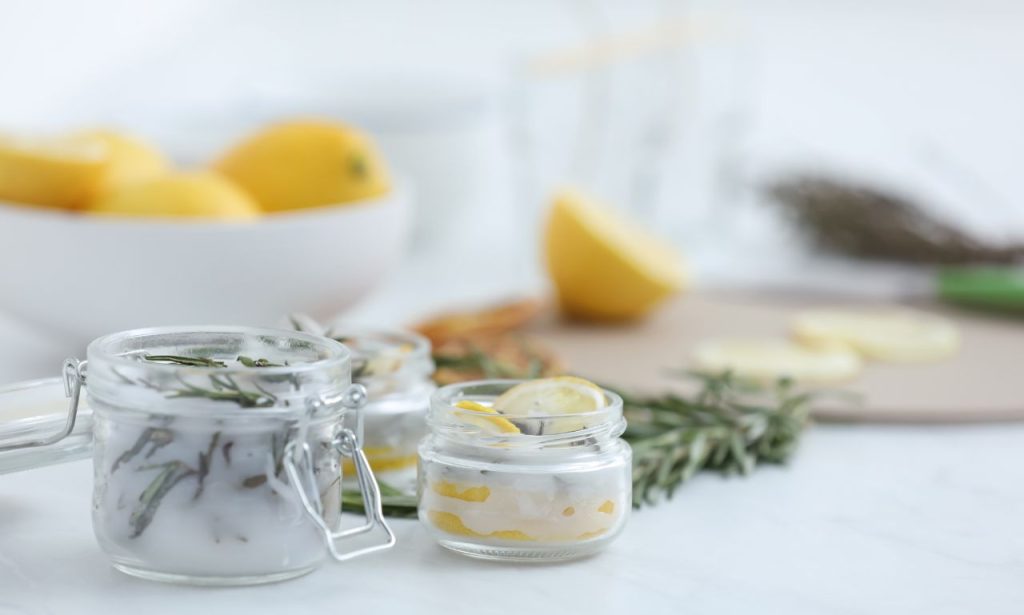Insects can be a nuisance, bringing discomfort and potential health risks into your home. While chemical repellents are widely available, they often come with their own set of problems, such as harmful side effects and environmental impact. Instead, you might want to consider natural methods that are not only effective but also safer for you, your family, and pets. This comprehensive guide will explore various natural solutions to keep insects at bay, ensuring your home remains a sanctuary.
Citronella Oil for Mosquitoes
Mosquitoes are notorious for their itchy bites and potential to spread diseases. Citronella oil, extracted from the leaves and stems of different species of Cymbopogon (lemongrass), is a well-known mosquito repellent. This essential oil works by masking the scents that attract mosquitoes, making it harder for them to find you.
To use citronella oil effectively:
- Citronella Candles: Light these in outdoor spaces like patios and gardens. The smoke infused with citronella oil can help keep mosquitoes away.
- Diffusers: Use an essential oil diffuser indoors to disperse citronella oil throughout the room.
- Topical Application: Mix a few drops of citronella oil with a carrier oil (like coconut or jojoba oil) and apply it to your skin.
Essential Oils for Ticks

Ticks can pose serious health risks, including Lyme disease. Essential oils like eucalyptus, lavender, and tea tree oil have shown efficacy in repelling ticks.
To create your tick repellent:
- Eucalyptus and Lavender Spray: Mix 20 drops each of eucalyptus and lavender essential oils with 2 cups of water. Spray this mixture on your skin and clothes before heading outdoors.
- Tea Tree Oil: Add 10-20 drops of tea tree oil to a carrier oil and apply it to exposed skin. This not only repels ticks but also soothes the skin.
DIY Spider Repellent Spray
Spiders, although beneficial in controlling other insects, can be unwelcome guests in your home. A DIY spider repellent spray using essential oils can help keep them at bay.
To make the spray:
- Peppermint Oil Spray: Combine 10-15 drops of peppermint essential oil with water in a spray bottle. Spray this mixture around windows, doors, and other entry points.
- Lemon Oil Spray: Similarly, mix lemon essential oil with water and spray in areas where spiders are commonly found. The strong scent of lemon is a natural deterrent for spiders.
Basil Plants – Inside and Out
Basil isn’t just for pesto. It’s also an effective insect repellent. This simple herb does wonders in keeping mosquitoes, fruit flies, and other harmful insects away from your living spaces.
- Indoor Basil Plants: Keep potted basil plants in your kitchen or on windowsills. The strong scent helps repel common household pests.
- Outdoor Basil Gardens: Plant basil near outdoor seating areas to ward off annoying insects while adding a splash of greenery. Fresh basil for your recipes is just a bonus!
Basil’s aroma is natural, refreshing, and makes an effective insect repellent—keeping bugs at bay without using harmful chemicals.
Chalk for Ants and Slugs
This one’s surprisingly simple. Ants and slugs hate chalk. Use it as a natural barrier to keep them from invading your home.
- Chalk Lines: Draw lines around entry points like windows and doors. Ants use scent trails to navigate, and chalk disrupts that—making your home an ant-free zone.
- Chalk Circles: Create chalk circles around garden beds to keep slugs out. It’s easy, effective, and keeps those slimy pests away from healthy plants.
With chalk, you’ve got a no-fuss, zero-toxicity way to keep ants and slugs out—perfect for your kitchen cabinets and garden beds.
Garlic Solution on Strips of Cloth
Garlic might be delicious to us, but pests can’t stand it. Garlic is an all-natural insect repellent that works wonders for keeping mosquitoes and flies at bay.
How to Use Garlic as an Insect Repellent:
- Garlic Infusion: Crush several garlic cloves and steep them in boiling water. Let it cool, then strain it.
- Application: Soak strips of cloth in the garlic solution, then hang them near entry points like doors and windows.
The potent scent of garlic is a deterrent to pests, including fruit flies. Bonus: It’s all-natural and inexpensive.
Diatomaceous Earth for Most Insects
Diatomaceous earth (DE) is a natural powder made from fossilized remains of diatoms. It’s effective against a wide range of insects, including ants, fleas, and bed bugs.
- Indoor Use: Sprinkle DE in areas where insects are commonly found. The fine powder dehydrates and kills insects on contact.
- Outdoor Use: Apply DE around the perimeter of your home, in gardens, and other outdoor spaces to create a barrier.
Beer for Slugs
Believe it or not, slugs love beer. Use it to your advantage to protect your garden.
- Beer Traps: Bury shallow plastic containers so their rims are level with the soil. Fill with beer. Slugs, drawn by the scent, will fall in and drown.
It’s a low-effort, effective way to protect your outdoor plants. And you don’t have to use good beer—leftover beer works just fine!
Kitchen Spices
Kitchen spices like cinnamon, paprika, and garlic powder are natural bug repellants that can help keep ants out of your space.
- Cinnamon Powder: Sprinkle a bit of cinnamon sprinkled around windowsills and entry points to disrupt ant navigation.
- Paprika: The strong scent of paprika also does the trick. It’s all-natural and works wonders in keeping those tiny pests away.
- Garlic Powder: Garlic isn’t just for flavoring food—it’s also effective at keeping ants out. Sprinkle garlic powder in cracks and crevices to create a natural barrier.
Ants are persistent, but using common ingredients like cinnamon and garlic keeps them away—without the need for commercial insect repellents.
Citrus to Repel Spiders

Citrus fruits are not only refreshing but also effective in repelling spiders.
- Citrus Peels: Place citrus peels (such as orange or lemon) around window sills, baseboards, and other entry points.
- Citrus Spray: Make a spray using citrus essential oils mixed with water. Apply this around areas where spiders are commonly found.
Vinegar
Vinegar, whether white vinegar or apple cider vinegar, is a powerful weapon in your pest-control arsenal. Its strong smell repels many insects, making it a versatile, natural bug repellent.
- Spray Bottle Solution: Mix equal parts vinegar and water in a spray bottle and spray on kitchen counters, around windows, and other areas. It’s especially effective against fruit flies and ants.
- Apple Cider Vinegar Trap: Place apple cider vinegar in an open container, cover it with plastic wrap, and poke a few holes. Fruit flies will enter, but they won’t be able to escape.
The acidity in vinegar makes it a fantastic natural repellent—effective for battling an abundance of pests around your home.
Protect Your Home Naturally
Using these natural methods to keep harmful insects at bay offers more than just insect protection—it also means you’re avoiding the health risks associated with harsh chemicals and commercial insect repellents. Whether it’s with essential oils, kitchen spices, or garlic juice, the solutions are as diverse as they are effective. Plus, you can mix and match these methods for additional protection.
Effective Natural Repellents
- Citronella Oil for mosquitoes.
- Lavender and Tea Tree Oils for ticks.
- Peppermint and Lemon Essential Oils for spiders.
- Basil Plants for mosquitoes and flies.
- Chalk for ants and slugs.
- Garlic Solution for flying pests.
- Diatomaceous Earth for a wide range of pests.
- Beer Traps for slugs.
- Cinnamon, Paprika, and Garlic Powder for ants.
- Citrus Peels and Sprays for spiders.
- White Vinegar and Apple Cider Vinegar for fruit flies and ants.
Enjoy a pest-free living space that’s safe, natural, and effective. No more harsh chemicals, only natural ingredients. It’s time to protect your home from annoying insects and creepy crawlies—the natural way.
Conclusion
Keeping insects away from your home naturally is both effective and environmentally friendly. By using these natural methods, you can protect your home from pests without resorting to harmful chemicals. Embrace these solutions and enjoy a more comfortable, insect-free living space.
ALSO READ: How Many Air Purifiers Do You Need In A House?
FAQs
A: While essential oils can be effective insect repellents, some oils may be harmful to pets. Always research specific oils and consult your veterinarian before use.
A: Yes, combining different natural repellents can enhance their effectiveness. For instance, planting basil while using citronella candles can provide comprehensive protection.
A: The frequency of reapplication depends on the method used. Essential oil sprays may need reapplication every few hours, while diatomaceous earth can last longer but may need reapplication after rain or cleaning.
A: While these methods are effective against a wide range of common household insects, some pests may require more specific or persistent treatment.
A: Yes, citronella plants can be grown in your garden or in pots. They thrive in warm climates and can provide a natural source of citronella oil.




